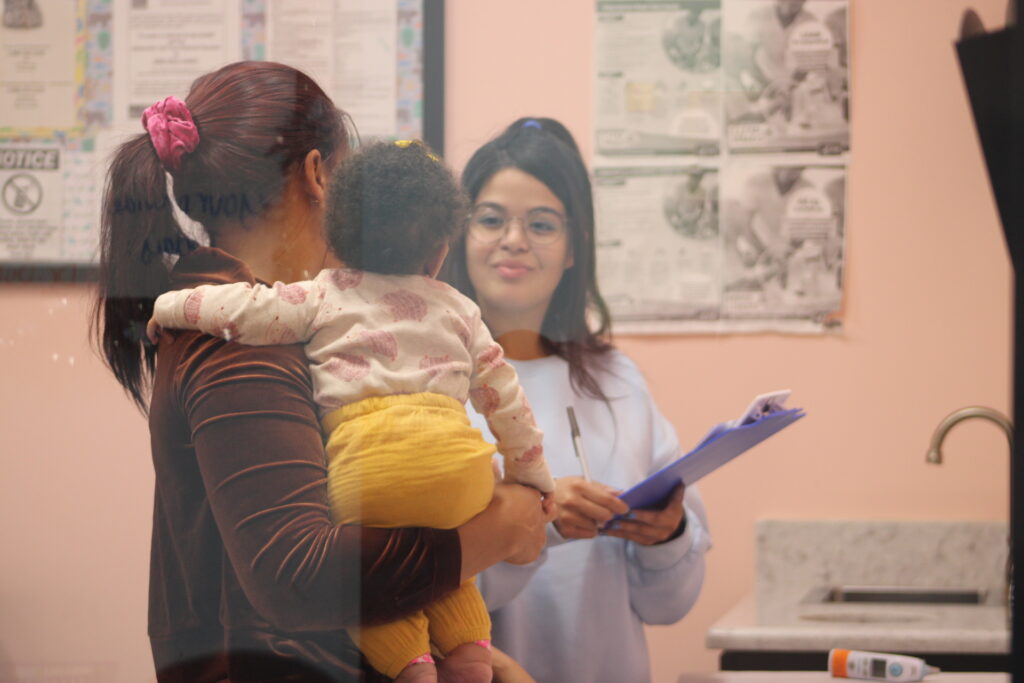
As a parent, you make hundreds of decisions to keep your child safe and healthy. From installing car seats correctly to choosing nutritious foods, your days are filled with acts of protection.
As a parent, you make hundreds of decisions to keep your child safe and healthy. From installing car seats correctly to choosing nutritious foods, your days are filled with acts of protection. One of the most important health decisions you will make is following the recommended childhood immunization schedule. At Colonia Pediatrics, your trusted pediatrician in Avenel, we want to provide clear, reliable information about one of the most critical vaccines: the MMR vaccine for measles, mumps, and rubella.
Understanding the right MMR age of vaccination is key to giving your child the best possible defense against these once-common and serious diseases. This guide will walk you through what the MMR vaccine is, why it’s so vital, the specific timing for the doses, and what to expect.
Before the MMR vaccine became available, measles, mumps, and rubella were common childhood illnesses that caused significant suffering and severe complications. While they might sound like old-fashioned diseases, they can re-emerge in unvaccinated communities and pose a serious threat.
The MMR vaccine is a safe and highly effective combination shot that protects your child against all three of these diseases at once.
The timing of the MMR vaccine is strategically planned to provide protection when children are most vulnerable while ensuring the vaccine is as effective as possible. The recommended schedule is based on decades of scientific research into how a child’s immune system responds to vaccines.
For the first few months of life, a baby may have some passive immunity passed on from their mother during pregnancy. However, this protection is temporary and fades over time. The MMR age of vaccination is set to begin just as this maternal immunity wanes, offering a new and robust defense system built by the child’s own body.
Getting vaccinated on schedule is the most effective way to protect not only your child but also vulnerable individuals in your community. This includes infants who are too young to be vaccinated, people with weakened immune systems, and pregnant women. This concept, known as herd immunity, is a cornerstone of public health and relies on high vaccination rates.
The Centers for Disease Control and Prevention (CDC) outlines a clear, two-dose schedule for the MMR vaccine. Following this schedule provides about 97% protection against measles and rubella, and about 88% protection against mumps.
First Dose:
Second Dose:
Life happens, and sometimes appointments are missed. If your child is behind on their MMR vaccines, there is no need to panic or restart the series. Simply contact your pediatrician in Avenel to schedule a catch-up appointment. An unvaccinated child or adult should get at least one dose of the MMR vaccine.
While the two-dose schedule works for most children, there are specific situations where the timing might be different.
International Travel:
If you plan to travel internationally with an infant between 6 and 11 months old, your pediatrician may recommend an early dose of the MMR vaccine. Measles is much more common in many other countries, and this early dose provides essential protection.
Teens and Adults:
Anyone who does not have evidence of immunity against measles, mumps, and rubella should be vaccinated. Evidence can include written documentation of vaccination, laboratory confirmation of past infection, or lab tests showing immunity. If you’re unsure of your status, it is safe to get the MMR vaccine.
The MMR vaccine is very safe and has been used for decades to protect millions of children. The link between the MMR vaccine and autism has been repeatedly and thoroughly debunked by numerous scientific studies around the world. The original 1998 study that suggested a link was found to be fraudulent and was retracted by the medical journal that published it.
Like any medicine, the MMR vaccine can have side effects, but they are usually mild and temporary. They are a sign that the body is building protection.
Common side effects include:
More serious side effects are very rare. The minor risks associated with the vaccine are far outweighed by the very real and severe risks posed by contracting measles, mumps, or rubella.
At Colonia Pediatrics, we see ourselves as your partners in raising a healthy and thriving child. We are dedicated to providing the highest standard of care in a warm and supportive environment. When it comes to the MMR age of vaccination, our team is here to:
Protecting your child with the MMR vaccine is one of the most effective and loving actions you can take. By adhering to the recommended vaccination age, you are shielding them from serious diseases and contributing to the health of our entire community.
Contact Colonia Pediatrics today to schedule your child’s well-visit or to discuss their immunization status. Our team is ready to provide the compassionate care your family deserves.